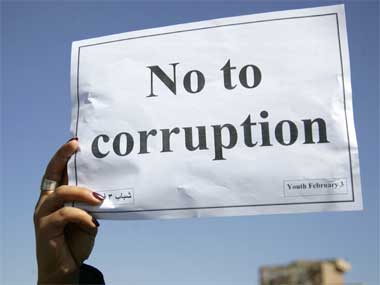“Today we are facing a testing time in the history of our nation. There has been erosion of people’s faith in the government. Their confidence in public institutions has declined. National trust in bureaucracy, including the police force, has collapsed. The integrity and professionalism of civil servants is being questioned.” That was a statement by Vinod Rai, Comptroller and Auditor General (CAG) of India, quoted in a Times of India report. Rai says the “credibility of the government is at its lowest since Independence. The quality of governance is below par… and decision-making is the casualty.” [caption id=“attachment_105720” align=“alignleft” width=“380” caption=“Reuters”]  [/caption] There’s nothing Promethian about the assessment coming from Rai, the man who drilled into the national collective consciousness, the magnitude of the 2G spectrum scandal both in terms of the money and the extent of skullduggery involved. But it is a statement nonetheless, that requires re-stating. The events over the last year – the public outrage over the spectrum scandal, Commonwealth Games financial irregularities, mining and other scams in multiple states, the massive support for Anna Hazare’s anti-corruption agitation and demand for a Lokpal – are not accidental developments. They indicate that public anger against the government, the bureaucracy, and the political class has been accumulating over the years and has reached a critical point. It was only a matter of time until it flowed onto the streets with demands for drastic changes. Anna Hazare being the rallying point of this mass frustration is incidental. The fact that the political class has a seemingly infinite ability to manipulate things and subvert institutions at the cost of people is directly related to the decline in the quality of bureaucracy. All the scandals that are blowing up on our faces on a routine basis would not have happened had some bureaucrat somewhere only put his foot down and blown the whistle. Sadly, no pocket of resistance has been visible. It is not without reason that ministers pack their offices with pliant officers. Pliant officers are a critical cog in the wheel of political corruption. They facilitate the unethical and the illegal by tweaking rules, misinterpreting them and finding ways to circumvent them. The corporate-political nexus would not work without their support. Their role is evident in spurious land deals across the country, in the scandals that have erupted recently and even in the economic mess that is prevalent in rural and tribal areas. ``It often provides very poor testimony of our capabilities if members of all-India services allow themselves to be used if not as facilitators, certainly as a medium for wrong-doing by others…’’ Rai said, according to the Times of India report. It could not have been put clearer. We have seen the police force being used to serve the interests of political groups across the country, honest police officials being hounded by the department, and IPS officials getting extension of service based only on the unstated condition that they remain loyal to the political bosses of the day. That brings us to the critical question: who does the bureaucrat serve finally: the political master or the people? The answer looks obvious but unfortunately, the question does not render a simple answer. The bureaucrat has to work in tandem with the politician boss – after all he has to carry out the execution of the government’s policies and decisions. He cannot do much if the policy is flawed. He cannot stand as impediment to what the government wants to achieve. Coordination is crucial in the smooth discharge of respective functions. The bureaucrat rebelling against the political bosses is a prescription for disaster. But can he be indifferent to government action that reeks of foul intention and illegality? The Whistleblower Act, if at all it comes to existence, will be a strong weapon with the officialdom. But ultimately it is a question of personal integrity. A dishonest bureaucrat will always find a way around the law. Controlling him has been a matter of political will as shown by Nitish Kumar in Bihar and Narendra Modi in Gujarat. But bureaucracy needs to introspect and find an answer to the problem itself. In Uttar Pradesh there was a brief experiment by IAS officers to identify the corrupt in their ilk. It went nowhere. It was a serious move nevertheless. It’s time for more such experiments.
The scandals that are blowing up in our faces on a routine basis would not have happened had some bureaucrat somewhere put his foot down. Nobody did.
Advertisement
End of Article


)
)
)
)
)
)
)
)
)



